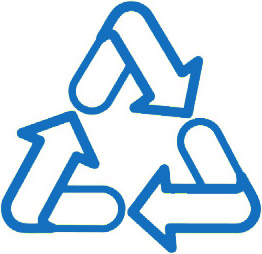
Shared Responsibility
Cooperation between businesses, public administrations and citizens in waste management
Waste management in Italy is based on the principles of accountability and cooperation among all those involved in the production, distribution, use and consumption of the goods that give rise to waste.
The concept of shared responsibility expressed by Italian legislation requires everyone – businesses, public authorities, and consumers – to contribute to the achievement of the general collection and recycling targets.
We can only be certain of achieving these goals if everyone participates, each in his or her own way.
The role of companies and CONAI’s objectives
Packaging manufacturers and users play an important role in today’s packaging management system. In fact, they are responsible for the product and consequently its environmental impact.
Their autonomy is recognised, requiring, to permit achievement of these goals, the participation in a consortium system managed by the companies themselves: CONAI, which stands for “Consorzio Nazionale Imballaggi”, meaning National Packaging Consortium, includes six Consortia concerned with individual materials: paper, plastic, glass, aluminium, wood and steel, of which CIAL is a member.
Separate collection of aluminium packaging has grown significantly in the past few years, as have quantities sent for recycling, thanks to the combined action of CIAL, the public authorities and, of course, the general public.
These are very important results not only make it possible to give new life to a precious material that is always ready for new and countless applications, but also offer environmental and economic benefits for the community.
Conai’s task is to guarantee the proper functioning of the system and achieve the goals for collection and recovery of used packaging by liaising with public collection services (of post-consumer packaging) and with the six consortia concerned with different materials, for the collection of packaging for recycling.
Companies set goals to be achieved through Conai and the individual materials consortia.
The general prevention programme set up by Conai on the basis of the specific prevention programmes of the six Materials Consortia work in the direction of reducing the weight of packaging at the source, increasing its recyclability, and recovering and recycling the quantities required under the Ronchi decree. In short, the programme aims to achieve sustainable development.
Separate waste collection: the system set up by the public authorities
The public authorities are entrusted with the task of setting up an adequate system for separate collection of wastes, so that citizens can separate selected packaging waste. Collection must be organised in a way which facilitates the task for citizens, whose participation is essential for the success of the operation. Homogeneous coverage of the country must be guaranteed, promoting efficacious, efficiency and cost-effective service.
Good habits: the role of citizens in separate collection of wastes
The role of citizens and consumers is fundamental: their choices when purchasing products and their waste management in the home actions are of decisive importance for achieving the stated goals.
Reduction at the source, as we have seen, should be our first goal in waste management, as part of environmentally sustainable production and consumption policies.
Choosing environmentally responsible products and packaging makes recycling easier and reduces the amount of waste to be thrown away.
Adopting such behaviour is important to ensure that our habits live up to our principles and send a signal to producers, because it is our behaviour that makes them change theirs.
The 4 R’s: Reduce, reuse, recycle and recover
Forms of waste disposal such as landfills and incineration are the ultimate destination of waste that cannot be recovered in any other way.
Under current legislation, priority is given to the “Four R’s“: Reduce, Reuse, Recycle and Recover.
Separate collection of wastes is in fact the “Fifth R”, a prerequisite for any disposal policy.
Separate collection: The “Fifth R”
In order to recycle waste or to recover material and energy from it, it is necessary to separate flows of materials that will then be sent to the various recovery and recycling facilities. Separate collection, as a prerequisite of any disposal policy, therefore constitutes the “Fifth R”.
Separate collection for recycling or recovery is a solution that reduces the volume of waste sent to landfills and saves raw materials and energy.
The involvement and collaboration of everyone involved is necessary for separate waste collection to develop its full potential: from public administrations to citizens and enterprises. It is a matter of sharing responsibility.




